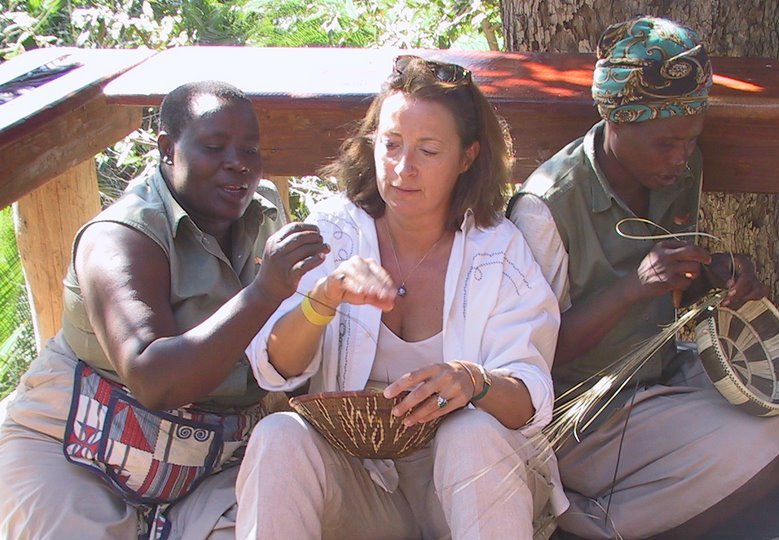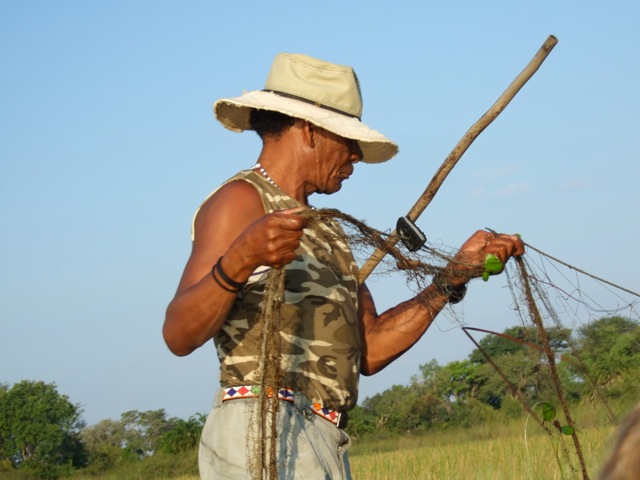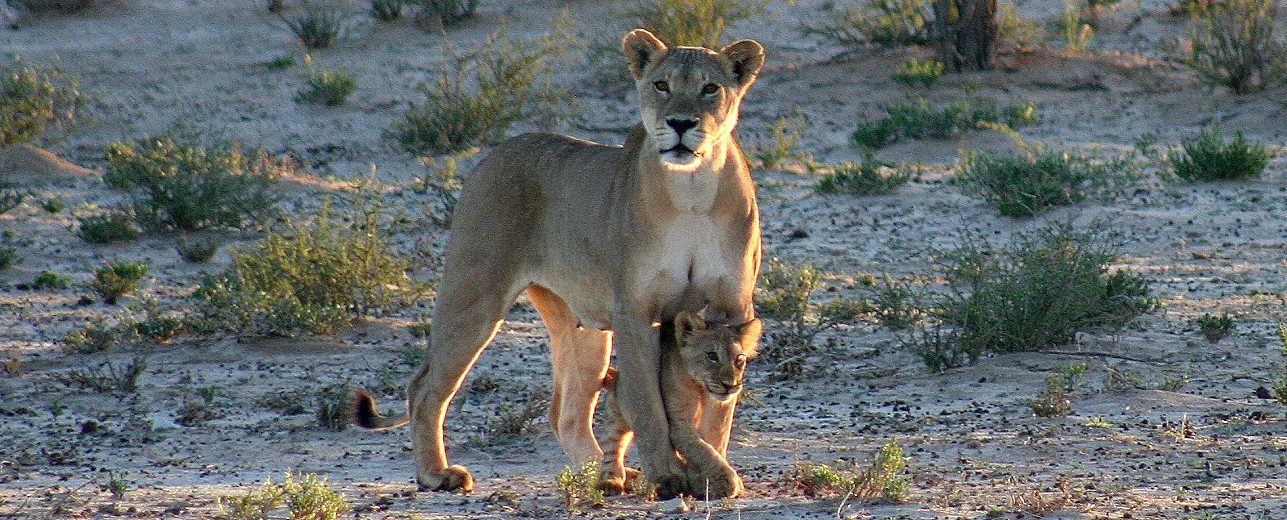Reed frogs strike up a dainty symphony of tiny bells. A cool breath rising off the water caresses warm skin. Soon fire flies will appear weaving their magic with a choreography of lights.
The Okavango Delta on a warm summer’s night is an unlikely setting for a murder story. But death is in the air. It comes from afar and is executed by people who think that what they’re doing is good.
“They kill all of us in Botswana,” Keeditse Bailang says on the subject of a call to boycott tourism to the country. Supported by charitable souls who think they’re protecting the rights of the Central Kalahari Game Reserve (CKGR) Bushmen this campaign will do the exact opposite. If successful, it will condemn many thousands of Botswana’s people to lives of poverty.
Keeditse, or Kiddy as she is better known, is a 49 year old chef at one of the tourist camps. She comes from a humble village background where she received seven years of formal schooling. As a MoYei (a tribe that’s lived in and around the delta for nearly 300 years) the only traditional skill that she had, to generate cash for her family, was basket-weaving. Her lucky break came when she landed a job as a bar lady in a tourist camp. After a year she was promoted to chef. For her the tourism industry has made all the difference. She nows sees a future for herself and her children.
“I want to get to a higher standard of cooking. I am taking my daughter to school to learn how to cook like me. That’s because she is not educated and I believe if she can pass that cooking course she can save her life under safaris. Safaris are very good for people who are not educated because we can’t pass, all of us, to university,” she explains.

Seaparo Rendo is a River Bushman, of the people called the Qanikhwe. He has also found his niche in Botswana’s tourism industry. Somewhere in his seventies (he’s not sure when he was born) he is the epitome of good health. His barrel chest looks as if he’s been breathing in deep lungfuls of fresh, wholesome, air all his life. Which he has.
“I grew up in a hunter-gatherer community. These communities were very close knit and family was very important. We hunted for consumption, and to sell at the meat market, which was at that time in Maun under a well-known tree. A lot of our food came from the delta. We dried jackalberries and ground them to eat. Above all we were fishermen. Fish was a very staple food for us and we had it at all meals prepared in different ways. We had fish for tea in the morning, we mixed it with mealies or sorghum for lunch, or it was just cooked on its own. What we enjoyed doing most of all was singing and dancing. We would do it every time we got the chance. I wore traditional attire until I was a grown man.”
Seaparo never went to school. As he says: “The industry found me here”. As Chief of the staff village his knowledge and wisdom are highly regarded by all. He describes his job as a jack-of-all-trades.
The call for a boycott saddens this wise old man. “Communities that lived in the delta long before these luxury lodges were built are now dependent on tourism. A lot of us are directly involved and are breadwinners for our families. My heart is not good knowing that someone would like to take away what we have worked so hard for.”

Safari guide, Kambango Sinimbo, talks about his childhood in the bush near the Okavango Panhandle. “I grew up in a poor family. My parents were farmers. It was very difficult for me to get things like normal clothing and I would go over a year without new trousers or shoes. I grew up in a traditional house which we had to rebuild each year. We ate the same food for breakfast, lunch, and dinner. As I grew up I came to realize how hard my parents had to work for us.”
Starting out as a waiter Kambango worked his way up to the position of guide. Several training courses and exposure to international tourists have opened his eyes to a wider world.
“When you meet people you don’t just talk about animals but you talk about ideas on how to better your life,” he says. “Now my family has a brick house that they do not need to build every year, with normal beds. We eat different and healthier foods. Now I can provide a better growing-up for my kids.”
What does he think about the boycott?
“I feel bad about it. If [overseas] people knew the life of our people, and realized what tourism has done for us and the country, they wouldn’t be saying such things. If this boycott will happen it will take my life back to the beginning again. Which means my life would stop as it would go backwards. I feel nervous about the effect on my life very, very much. My family is relying on me. If I relied on farming it would not take me anywhere.”
“Stopping tourism would mean they want people to lose their jobs. They are killing the people because most of the people rely on tourism.”
At 41 Daniel Mafikizolo is a waiter at a tourism lodge. He explains that after getting his certificate he started work in a lodge in the small town of Kasane on the Chobe River. He then made a strategic decision to move to the bush.
“Because in town you spend a lot of money, you have to buy food and you have to rent. But in the bush they provide you with food and accommodation. The bush gives you the best experience to become a guide or a manager. And I am trying very hard to end up as a manager, as this is my dream.”
His upbringing, like so many of his generation, was rural and poor and the opportunities that the tourism industry have opened up for Daniel has released him to another world.
“I can help my kids and my family without any fear. Not like my parents who had to struggle just so that I could go to school.”
Regarding the ethics of a boycott he has this to say.
“Stopping tourism would mean they want people to lose their jobs. They are killing the people because most of the people rely on tourism. Those people work in all kinds of hotels, camp sites and camps. Which means if people stopped coming there would be no life for them and no life for me. And without tourism there is nothing I can assist my son with, which will affect him and his future. If tourism industry stopped we would lose money and we won’t be able to help our family or our parents. The tourism industry provides jobs for a lot of people, and in my village lots of people work in camps.”
While members of the American and European public may be unaware of the consequences of a tourism boycott the same cannot be said of an organisation that claims to defend the world’s tribes.

You write so well, Clarissa. You’re quite a champion. I hope there’s a big enough audience out there to hear you. Keep it up. And write
a book, for heaven’s sake!
Thank you, Charles. Regarding a book – watch this space!